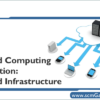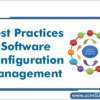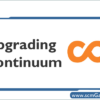
Upgrading Continuum – Continuum Upgradation Guide
This document will help you upgrade Continuum from 1.2.x to 1.3.3 and above. When upgrading Continuum, it could have some database model changes. Usually these changes will be migrated for…
Read more »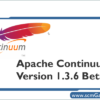
Apache Continuum Version 1.3.6 Beta 1 – What’s new in Apache Continuum ?
The Apache Continuum team have released a beta of Apache Continuum 1.3.6. Apache Continuum is a continuous integration server, which offers automated builds, role-based security, release management and integration with…
Read more »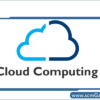
Cloud Computing Trends | Cloud Adoption Analysis | Organizations
We just finished the first decade of this century/millennium. The early part of this decade saw great worry about the Year 2000 problem. Much gloom and doom was predicted, but…
Read more »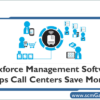
Workforce Management Software Helps Call Centers Save Money
One way to increase revenues in your inbound call center might be via workforce management software. For call centers that realize revenue by answering calls (be they catalogues, reservation centers,…
Read more »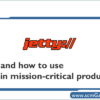
Why and how to use Jetty in mission-critical production
This article is a summary of a seminar I had on the topic. If it seems like it’s a continuation of an existing discussion that’s because, to some extent, it…
Read more »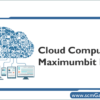
Understand Cloud Computing in Simple Terms – Maximumbit Inc
Cloud Computing is an emerging computing technology that uses the internet and central remote servers to maintain data and applications. Cloud computing allows consumers and businesses to use applications without…
Read more »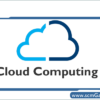
Cloud Computing: The Computer is out the Window!
Debates have been heating up about Cloud Computing (CC). Biggest challenge is security and bigger bigger challenge is ‘control’ of a company’s tech assets. The only limitation so far has…
Read more »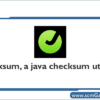
Jacksum – a java checksum utility – Introduction and usage
Jacksum, a java checksum utility Software Name : Jacksum Website : http://jacksum.net/en/index.html Version : 1.7.0 Jacksum is a platform independent checksum utility (written entirely in Java) for computing and verifying (integrity…
Read more »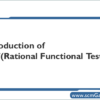
Introduction of RFT(Rational Functional Testing)
Introduction of RFT(Rational Functional Testing) Functional Tester is available in two integrated development environments and two scripting languages. Functional Tester, Java™ Scripting uses the Java language and the IBM® Rational®…
Read more »
Advance Features of Smart Build Tools
Table of Contents Agile Development Challenges Deployment Challenges Build Acceleration Challenges Integration with Elastic and Cloud Computing Workflow Management Reference: Agile Development Challenges Two of the core principles of…
Read more »
Why Worry About Versioning? – Versioning Complete guide
Why Worry About Versioning? Having a good version scheme for your software is important for several reasons. The following are the top five things a version scheme allows you to…
Read more »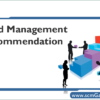
Build Management Recommendation – Build Management Guidance
Recommendation from Microsoft’s Software Configuration Management Best Practices Build Management Recommendation Recommendation for Defining a Build Define terms in your development process, and keep a glossary of them on an…
Read more »Test Article
Test Article Rajesh KumarI’m a DevOps/SRE/DevSecOps/Cloud Expert passionate about sharing knowledge and experiences. I am working at Cotocus. I blog tech insights at DevOps School, travel stories at Holiday Landmark,…
Read more »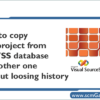
How to copy VSS project from one VSS database to another one without loosing history
If you have any of the following questions in your mind, then this article is the perfect destination for you. How to copy VSS project from one VSS database to…
Read more »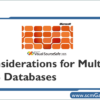
Considerations for Multiple VSS Databases – Pros and Cons
Microsoft recommends against using multiple VSS databases in simple cases. The support that was in some earlier versions of the product using Data Path doesn’t seem to work at all…
Read more »
SSARC Utility & SSRESTOR Utility – Archive, Restore VSS Project – Guide
Question: How to Archive VSS Project in Visual Source Safe (VSS)? How to Restore VSS Project in Visual Source Safe (VSS)? What is SSARC Utility? What is SSRESTOR Utility? SSARC…
Read more »
How To Create a Unique SRCSAFE.INI File ?
1. Create a new SRCSAFE.INI file and place it in the desired location. 2. If you want include the default SRCSAFE.INI in the unique copy, add the following line: #INCLUDE…
Read more »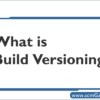
Software versioning – What is Build Versioning?
Version: It is a set of code to which major/minor or a Patch of changes is made. Hence we say a build is released to the QA team for testing….
Read more »gfgds
gfdgfdgfdg Rajesh KumarI’m a DevOps/SRE/DevSecOps/Cloud Expert passionate about sharing knowledge and experiences. I am working at Cotocus. I blog tech insights at DevOps School, travel stories at Holiday Landmark, stock…
Read more »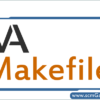
Makefile – Makefile example – Makefile Guide
Note that this example Makefile is from an older software project, which specifies everything within each makefile rather than using any recursive or inclusion-based makefile hierarchy, and is presented here…
Read more »
AnthillPro 3.6 Released – What’s New Features in AnthillPro?
Major New Features In AnthillPro 3.6 Improved support for geographic distribution. The server-agent communication layer has been reworked for better performance. The new approach also supports the use of…
Read more »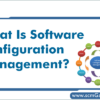
What Is Software Configuration Management, its importance & how to implement it?
Software engineers usually find coding to be the most satisfying aspect of their job. This is easy to understand because programming is a challenging, creative activity requiring extensive technical skills. It can mean getting to “play” with state-of-the-art tools, and it provides almost instant gratification in the form of immediate feedback. Programming is the development task that most readily comes to mind when the profession of software engineering is mentioned.
That said, seasoned engineers and project managers realize that programmers are part of a larger team. All of the integral tasks, such as quality assurance and verification and validation, are behind-the-scenes activities necessary to turn standalone software into a useful and usable commodity. Software configuration management (SCM) falls into this category—it can’t achieve star status, like the latest “killer app,” but it is essential to project success. The smart software project manager highly values the individuals and tools that provide this service.
This chapter will answer the following questions about software configuration management.
Read more »

The Four Basic Requirements for SCM Process – SCM Guide
Identification, control, audit, and status accounting are the four basic requirements for a software configuration management system. These requirements must be satisfied regardless of the amount of automation within the SCM process. All four may be satisfied by an SCM tool, a tool set, or a combination of automated and manual procedures.
- Identification—Each software part is labeled so that it can be identified. Furthermore, there will be different versions of the software parts as they evolve over time, so a version or revision number will be associated with the part. The key is to be able to identify any and all artifacts that compose a released configuration item. Think of this as a bill of materials for all the components in your automobile. When the manufacturer realizes that there has been a problem with parking brakes purchased from a subcontractor, it needs to know all the automobile models using that version of the parking brake. It is the same with software. If we are building a multimedia system that has audio MPEG3 drivers for Windows 98, Windows 2000, Windows CE, Linux, and FreeBSD operating systems, how do we find out which releases are impacted when we find an error in the Linux product? You must go back to your SCM system to identify all the common components in all operating system releases that are impacted.
Read more »
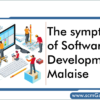
The symptoms of our software development malaise
Software development has traditionally suffered from producing end products with a definite lack of inherent quality. The symptoms of this quality lack are listed here:
- Software development projects are often delivered late and over budget.
- Often the delivered product does not meet customer requirements and is never used.
- Software products simply do not work right.
As we look into the symptoms of our software development malaise, five principal issues related to software development arise.
Lack of Visibility
Software is conceptual in nature. Unlike a bridge, a building, or another physical structure, it is not easy to look at software and assess how close it is to completion. Without strong project management, “software is 90% complete 90% of the time.” Through the adoption of SCM policy and the definition of the configuration management model of the software under development, all CIs, components, and subcomponents are immediately visible for versions, releases, and product families.
Read more »
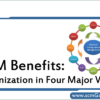
SCM Benefits the Organization in Four Major Ways – SCM Process Benefits
SCM benefits an organization in four areas: control, management, cost savings, and quality. These four benefits are mapped to an organization’s overall goals and objectives when the decisions are made to bring a SCM tool in-house. The features of a SCM tool further support these benefits.
SCM Benefits the Organization in Four Major Ways
Control
Control in SCM provides the ability to review, approve, and incorporate changes into a configuration item. There must be one controlling SCM tool so that there is only one set of training, license management, installation, and user procedures. All project personnel use the tool. Inherent in the tool is a standardized, measurable process for change. Integrity maintenance of CIs is enforced throughout the product life cycle. The tool permits only controlled change to the baseline CIs, and all changes are tracked.
Read more »
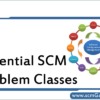
Potential SCM Problem Classes | SCM Potential considerations in an organization
When planning for SCM in your product development organization, you must first understand the classes of potential problems that can exist. Once the classes are understood, the inherent problems that are causing configuration management issues may be easily identified.
Potential SCM Problem Classes
- Multiple developer syndrome—When you have a project that requires more than one developer, there is the problem with multiple people working on one product base. This could be a test plan, requirements specification, or code. Effort is wasted when two or more people work on the same file and then save it. Without SCM control, the last person to save the file has those changes saved. All the other changes are lost. The simplistic method of locking a file while one person reads it prevents others from simultaneously working on the file.
- Multiple releases—Enhancements to the base product should result in additional releases of the product containing the latest changes. Once the second release is available, some users are on an earlier release. Having an SCM makes managing those releases possible. When bugs are reported, changes must be made across all impacted releases. As new features become available in the product, they must be made available to all current users, no matter what the release date.
Read more »
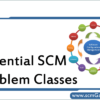
What are the potential SCM problem Classes in the process?
When planning for SCM in your product development organization, you must first understand the classes of potential problems that can exist. Once the classes are understood, the inherent problems that…
Read more »
